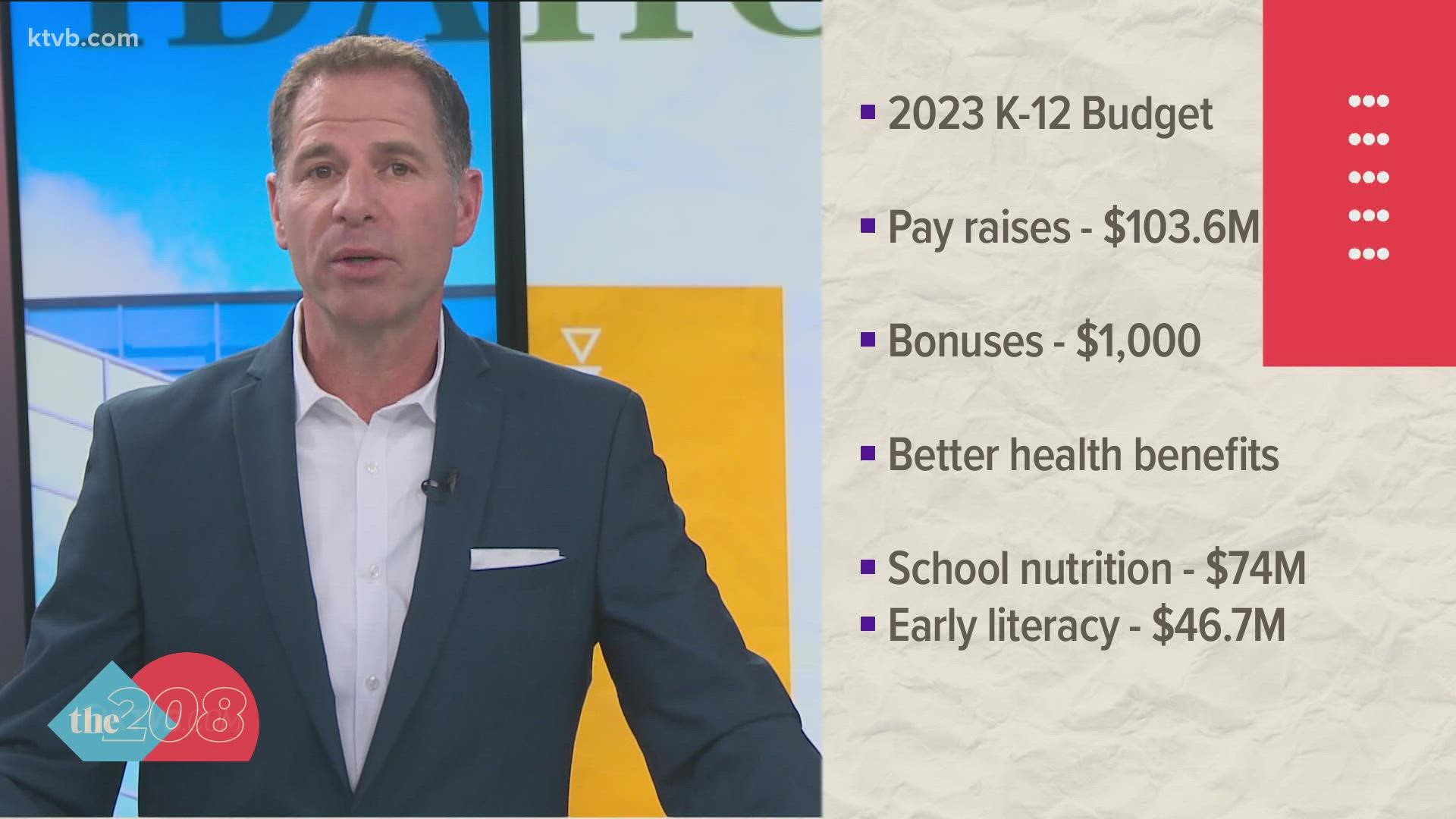BOISE, Idaho — Note: The video above is from a March 7 story on the education budget.
Lawmakers on a House panel approved legislation Monday to boost reading skills among young students with optional full-day kindergarten.
The House Education Committee voted 9-5 to send to the full House the bill giving school districts the option of full-day kindergarten by using $73 million in literacy intervention money.
Republican Gov. Brad Little has made boosting reading scores among young students a priority, saying good reading skills make for life-long learners and give students the best chance for a successful academic career and life.
Backers of the bill said about 25% of third-graders aren't reading at grade level, and full-day kindergarten will help.
“We're going to change the trajectory of their lives,” said Republican Rep. Ryan Kerby, one of the bill's sponsors.
He said students who fall behind early end up having trouble as adults, and can become a drain on taxpayers through incarceration or needing financial help from the state.
The Idaho School Boards Association, Idaho Association of School Administrators and the Idaho Charter School Network spoke in favor of the bill.
Opponents said the Idaho Constitution only requires spending taxpayer money on education starting in first grade.
“We are already going beyond our constitutional requirements of funding schools,” said Republican Rep. Tony Wisniewski. “It's common schools from age 6 through 17, 18.”
Opponents also cited high gas prices faced by taxpayers as a reason not to spend the money on kindergarten, and a lack of confidence that kindergarten could jumpstart young students into becoming better at reading.
The legislation removes any ambiguity that the money can be used for all-day kindergarten, but gives school districts flexibility in whether to take that route. Half of the money will be based on enrollment of students in kindergarten to third grade. The other half will be based on students improving their reading skills, with districts with higher-improving students getting more.
Democratic Rep. John McCrostie, a working teacher, supported the bill.
“The bill at its core really addresses third-grade literacy,” he said. “The statistics show that if a third-grader is proficient in reading by third grade, then they are likely to be successful with their reading by the time they get into eighth grade. Their eighth-grade reading level is going to show their high school success. At the end of the day, if they can read by the time they’re in third grade, they are much more likely to graduate from high school.”
Republican Rep. Codi Galloway, who made the motion to send the bill to the House floor with a do-pass recommendation, said she likely wouldn't send her children to full-day kindergarten but said some children would benefit with the program.
Republican Rep. Gary Marshall, a former teacher, voted to send the bill to the House floor as well but would encourage his daughters and daughters-in-law to keep their children home until first grade.
He said that when he grew up there was no kindergarten, and he couldn't recall his mom reading to him.
“My generation went to first grade, in our modern language, totally unprepared for first grade,” he said. “We didn't think of it that way, we just went to first grade, and started where we were at, and we were actually pretty successful.”
The bill passed the Senate 31-2 last week, with two Republicans voting against it.
If passed by the full House, it would go to Little's desk. Little on Monday indicated his support for the bill on Twitter by thanking the House Education Committee members who voted to approve the bill.
Watch more Idaho politics:
See all of our latest political coverage in our YouTube playlist:

